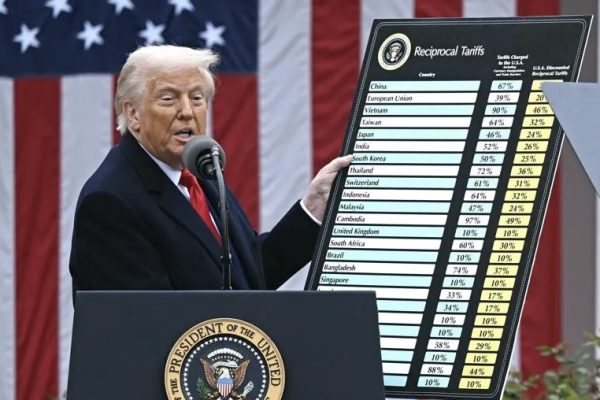Hot Take – Time Doesn’t Exist

Time (noun)
1. the indefinite continued progress of existence and events in the past, present, and future regarded as a whole. 2. a point of time as measured in hours and minutes past midnight or noon.
First and foremost, this definition is a human construct (All definitions – language – are all constructs too). But time, and especially our interpretation and meaning of time, is completely made up. Biologically it doesn’t exist; living beings develop and grow and age but not by the hours/minute/seconds benchmarks humanity has decided to create. ‘Time’ is irrelevant to anything but human beings, who communicate and center their lives around an abstract idea because it makes their lives seem more organized. But the world does not confine itself to time. The world functions perfectly well without the construct: biologically, human beings have natural rhythms, such as the circadian rhythm (the sleep cycle) and hunger, and even age and development would happen without our notice of ‘the time’ it took. ‘Time’ as a concept of growth, age, and development, sure, it happens, but not as a benchmark for points of existence.
I’m sure someone could argue we created ‘time’ just like we created ‘meters’: to measure things. To measure the passing of age or how long a process takes. But I have reason to believe there’s not even anything to measure when we’re talking about time. I’ll get to that.
If you are a person who believes in self-agency, and that your lifetime is not already pre-planned – rather than unravelling a scroll, you’re writing on one – then you might easily be convinced that a future does not exist. Now I don’t mean we don’t have a future, just that it’s not there until we’re in it. Philosophers like Nietzsche might agree that there isn’t a future because our lives – and maybe, then, the world – are not predetermined. As tempting as the universe of “Back to the Future” may sound, I refuse to believe there is an alternate reality where our actions and the world’s development currently/previously/in-the-future-ly exists.
So considering that, if you look back at the definition of time, the ‘regarded as a whole’ part is nullified. Thereby proving time’s definition is only a human claim we can’t really know for sure.
Now. Let’s talk about the murkiness of the past.
Is anything in your memories unbiased? Even if you think you remember something objectively, that’s impossible. Even if you and I were standing right next to each other and watched the exact same thing, our recollections would be different: we would pay attention to or focus on different things and miss others, and even our physical perspectives would be different (me, 5 feet strong, vs whatever height you are; we’re both at different vantage points. Even if you were 5ft too, we’re still looking at different angles). You might think all of our memories can transcend that and we can take it objectively, but I disagree. Our own recollections just can’t be separate from ourselves. So then take into consideration your present self, looking back on old memories. Whatever awareness, understanding, or emotional state you had then, you don’t have now. Not only was previous bias affecting the experience, but now yourself looking back on it is has a different bias. This creates problems like the hindsight bias, where we say something like, “oh I knew that was going to happen” genuinely believing that, when you really didn’t know it was going to happen while you were there. The inability to accurately depict and understand the past proves to me that the past, for all its distorted versions, is not universally understandable. In a more relevant case, consider textbooks or news reports. What is written is usually an attempt to be un-biased and objective, but even unintentional bias has to slip in. This means that we are reviewing history inaccurately – not wrong, but not how it was. And so, again, universal understanding of the past does not exist.
With the future null and the past murky, I’d argue the only point we live in is the present. If we consider the abstract timeline of time, I’d argue we only exist – and will only ever exist – as a tiny dot on that line. We are all living in that same tiny dot – no one lives in a different space because we all share the present moment.
So let’s go back to the point I made, about the existence of ‘time’ as just an abstract marker. Well, my question is, what are we measuring? How long ago that previously-present moment has passed? Sure, it’s an objective human-designed measurement, but does it really matter? Does it really have a purpose, besides organizing how the human species commutes and communicates? If we ceased to remember the concept of time, the world would still spin. Previous moments would still disappear. The present you still has the responsibility to make actions and decisions (that were not designed in a ‘future’). The present you is still active.
I’m not even sure you want to hear me go off about how relative the measurements of time are. How does it work that some students think the week went by “fast” or the week went by “slow”? Do different species even consider the passing of the day, or do they just continue to take action in their present without considering the ‘future’ or the ‘past’?
So, I’m with that one super crazy Kanuga counselor one advisory had, that said time is only a man-made construct.
It’s an abstract mentally, a way to carve out our present and to organize the human species in a way that we all can efficiently communicate. Time is like humanity’s one language that attempts to enable us to be productive as a species. You can make the decision yourself as to if it does that or not.
But time, outside of the human mind, in my opinion, ceases to exist.
So go out there and have a nice time present.
Lost? It’s a matter of time.
P.S. I recommend Pink Floyd’s Album The Dark Side of the Moon, specifically the song “Time”.

Isabelle (Class of 2023) is a four-year veteran of the Navigator crew. She loves to write opinion pieces unprompted and also commonly sponsors the Varsity...





